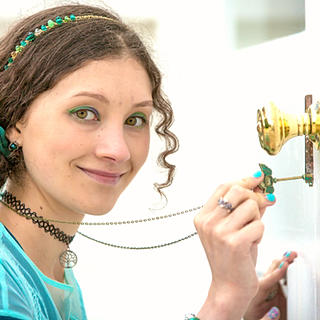Becoming More Free & Radical About Clean Eating
- Admin
- Dec 13, 2016
- 3 min read

Most of us have probably realised by now that there are certain expectations placed over us to eat in a certain way or according to a certain ideal.
Usually, this boils down to faddy messages such as eating clean, whereby individuals are either explicitly or implicitly encouraged to cut out more and more food groups from their diet - meanwhile there is an encouragement to force more expensive food items back in …
In other words, we are sent the message to feel less free and autonomous about making our own intuitive food choices, while the misinformed messages we are sent from media and other social sources of information become even more radical about what we ‘should’ and ‘should not’ eat.
As i’ve talked about lots before in relation to the Nourishing Routes philosophy, I am not against any aim or evidence based claim to eat an overall more healthy diet. In fact, Nourishing Routes actively promotes nourishment, balance and, crucially, enjoyment and social connection with food too.
But , as with any strict regime that advocates good and bad foods, there is often a lack of joy and balance in the concept of clean eating. Instead, there is multiple rules, ideologies and radical viewpoints of what is deemed ‘correct’ to be consuming, with little consideration of each individuals’ unique circumstances and cultural background. To me, this is not very liberating or healthy at all, especially when there is a whole host of benefits to wellbeing by becoming more flexible and intuitive around food choices that feel as diverse as possible.
So what can we do? What action can we take for our food choices to feel more free, while becoming more radical about cutting concepts like clean eating out of our lives?
1) Firstly, it is important to recognise when you come into contact with messages that tell you what you ‘should’ and ‘should’ not be eating. This includes articles, blogs and social media articles that proclaim the latest superfood, dieting trend, or food group to be excluded from the diet. It also includes headlines that demonise specific types of foods and their apparent detriments to health (especially as most of these messages aren’t supported by sufficient evidence!)
2) We can actively choose not to buy or promote products that seem to promote a specific way of eating. This might include superfood powders that (unless they actually taste amazingly good in the recipes you make regularly) have any supported health benefits.
By doing this, it sends a message that our society are no longer on board with radicalising fads about the food we eat. Similarly, we can choose not to share promotional posts on our social media pages about specific ways of eating (e.g. paleo, plant-based etc).
Consequently, we can respect that individuals are all unique, and have the capacity to make their own choices around food without being forced to feel guilty, ashamed or inadequate around their food choices. It also stops individuals from using food and what they eat as a way to make them feel superior over other people who eat in a different way
3) Finally, we can get even more active by campaigning against the use of radicalised food messages. This can include a letter to your local MP or public health community to state your view on the current food situation. Perhaps you are concerned by the dieting products in your local supermarket or pharmacy.
Perhaps you are critical of being bombarded with advertisements about miracle superfoods and weight loss powders. Perhaps you are just sick and tired of being sent false messages that negatively impact your self-esteem and personal food choices.
Ultimately, by taking our own radical actions on these matters, no matter how big or small these actions may be, our society can begin to sing a more compassionate song. A song that encourages individuality and freedom over our food choices, without victimising individuals or making them feel guilty for not following a particular dietary lifestyle.
Not only does this protect against issues such as eating disorders and low self esteem, but it also creates a pathway for our society to focus its energies on promoting more positive and empowering messages - messages that encourage a focus away from dieting and clean eating, towards self-development and reaching our full potential in both body and mind
All thats left to say is lets become more free, and lets get even more radical, about living lives our own way and not according to the unrealistic standards of clean eating !
All thats left to say is lets become more free, and lets get even more radical, about living lives our own way and not according to the unrealistic standards of clean eating !













































Comments